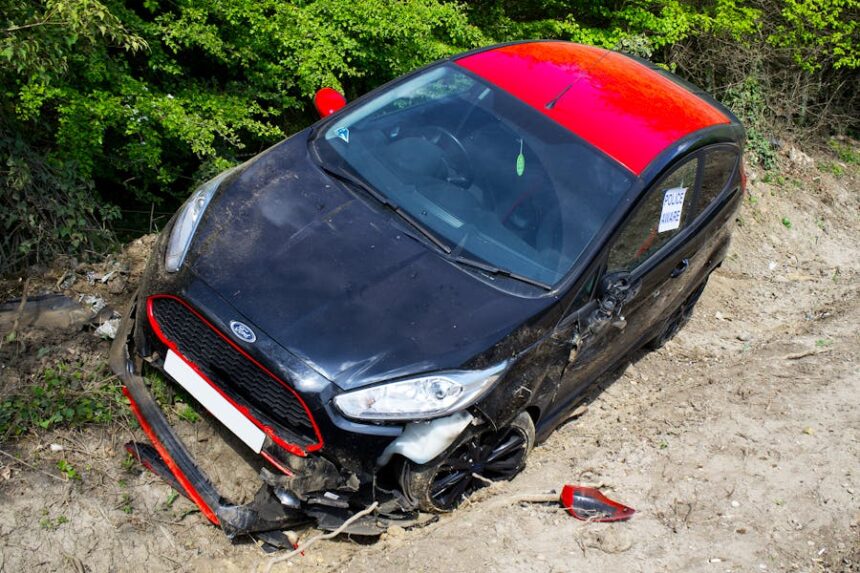In the chaos after a car crash, it’s often the visible injuries that get immediate attention—fractured bones, bruised skin, bleeding wounds. But sometimes, the most catastrophic damage occurs quietly. When a person’s brain is starved of oxygen—even for a few minutes—it can set off a cascade of irreversible consequences. No broken glass, no direct blow, just breath slipping away. What follows is a life forever altered by an injury that doesn’t always leave marks but leaves devastating change.
- Oxygen Deprivation: The Injury No One Sees Coming
- When the Brain Is Injured Without Impact
- “Something’s Different”—The Signs That Surface Later
- Making the Invisible Injury Visible in Court
- The Emotional and Financial Toll on Families
- Why Insurance Companies Downplay These Claims
- A Lifetime of Adjustments Deserves a Lifetime of Support
- Fighting for the Voices That Can’t Always Speak
Hypoxic brain injuries from car accidents are among the most misunderstood and overlooked. Because they’re not caused by physical impact alone, they often escape notice until it’s too late. And by the time symptoms appear, the damage is already done. At Babcock Injury Lawyers, we know that these injuries demand urgent recognition, aggressive legal action, and a voice that won’t be silenced just because the harm wasn’t loud.
Oxygen Deprivation: The Injury No One Sees Coming
Every organ needs oxygen, but none more urgently than the brain. Just four to six minutes without it, and brain cells begin to die. In the aftermath of a serious crash, it doesn’t take much to disrupt oxygen flow: a crushed airway, a collapsed lung, cardiac arrest from trauma, or even a victim trapped and unable to breathe properly while waiting for help.
These aren’t freak incidents—they’re real, recurring risks. And while paramedics do everything they can, the brain often loses its race against the clock. For survivors, what follows isn’t always obvious. There’s no dramatic announcement that oxygen was lost—just confusion, slurred words, or a changed personality that slowly reveals something is deeply wrong.
When the Brain Is Injured Without Impact
Most people associate brain injury with a direct hit: head meets dashboard, helmet, windshield. But hypoxic brain injury doesn’t require a blow—it just needs a pause in oxygen delivery. That makes it harder to recognize and even harder to prove.
In some cases, there’s a delay in symptoms. The victim wakes up, appears shaken but stable, and then begins to struggle with memory, decision-making, or physical coordination. Others never wake up the same. These symptoms often emerge in the shadows, quietly but unmistakably shifting the course of a life that once had momentum, plans, and clarity.
“Something’s Different”—The Signs That Surface Later
The first clue that something’s wrong may not come from doctors—it may come from family. A spouse notices a blank stare where there used to be conversation. A child sees their parent getting lost driving a familiar route. A co-worker watches someone forget basic steps they once knew by heart.
These stories aren’t always captured in charts or scans, but they’re real. Hypoxic brain injury affects how the brain processes, reacts, and connects. Survivors often describe it as “brain fog” or “feeling slower.” Their words may not be as sharp. Their mood may shift. These subtle shifts become loud evidence when heard by a court that understands how trauma works behind the scenes.
Making the Invisible Injury Visible in Court
Juries don’t respond to buzzwords—they respond to impact. That’s why proving a hypoxic brain injury involves more than listing symptoms. It means showing how a vibrant, capable person had their life detoured by something that never left a scar. Medical imaging alone may not show it. But a powerful case combines hospital records, EMT reports, witness accounts, and expert testimony to connect the dots.
Speech therapists, neurologists, and psychologists often step in to explain what happened when the oxygen was lost and what changed after it. These aren’t abstract concepts—they’re day-to-day consequences: needing help showering, forgetting birthdays, losing independence. When presented well, even invisible damage becomes undeniable.
The Emotional and Financial Toll on Families
A hypoxic brain injury isn’t just about the victim. It reshapes an entire family. Spouses become caretakers. Children become helpers. Vacations are canceled. Jobs are lost. The household begins orbiting around doctor visits, rehab, and routines designed not to heal, but to adapt.
The costs add up quickly. Beyond hospital bills, there’s the expense of in-home care, assistive devices, long-term therapy, and lost income. Often, one injury robs two people of careers—the survivor and their caregiver. That’s why legal action becomes not just a fight for compensation, but for stability, dignity, and survival.
Why Insurance Companies Downplay These Claims
Because these injuries often lack visible trauma, insurance companies are quick to push back. They argue that the victim is exaggerating. That the memory issues are just aging. The mental fog is unrelated. They bank on confusion, silence, and delay—and they pay less when families don’t push back with evidence.
But with the right legal support, these tactics unravel. A skilled attorney brings in the experts, lays out the science, and forces insurers to confront the truth: that oxygen deprivation caused permanent harm. That a number on a payout chart can never replace what was lost, but it must at least attempt to account for it.
A Lifetime of Adjustments Deserves a Lifetime of Support
Brain injuries don’t heal like broken bones. A person with a hypoxic injury may recover some functions, but rarely all. They may walk, talk, and live independently, but with limitations that are frustrating, frightening, and exhausting. Or they may need full-time care for the rest of their life.
Legal settlements must reflect that reality. They must project costs not just for today, but for the next 10, 20, or 30 years. That includes therapies, medication, mental health support, and all the adaptive tools that help restore some quality of life. Because justice isn’t about a check—it’s about giving someone the tools to live again.
Fighting for the Voices That Can’t Always Speak
Some hypoxic brain injury victims lose their ability to advocate for themselves. They struggle to speak, write, or even fully understand what happened to them. In those cases, it’s the family that must speak for them, and the lawyer who must amplify that voice in court.
Baton Rouge Brain injury lawyers understand that legal cases represent more than just numbers—they are stories of lives disrupted by unexpected events. We advocate not only for fair compensation but also for acknowledgment of the challenges faced. Because the most profound impacts are often those that go unnoticed, and they deserve to be recognized.




